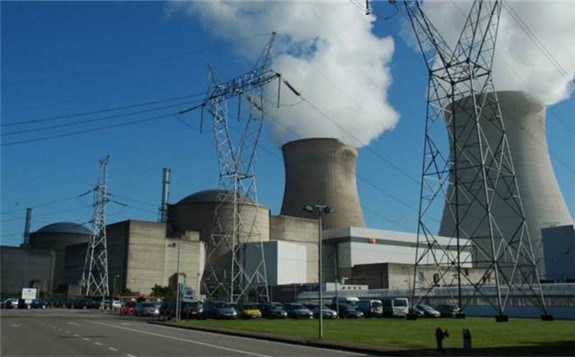
On 23 December, Belgium's coalition government said it had agreed to close its existing nuclear power plants by 2025. Under the plan, Doel 3 and Tihange 2 will be shut down in 2022 and 2023, respectively. The newer Doel 4 and Tihange 3 will be shut down by 2025. However, it requested FANC consider the extended operation of the two newer reactors if a report by grid operator Elia, due on 18 March, shows the security of energy supply will be jeopardised after 2025 without nuclear energy.
FANC has now submitted its analysis of a possible extension of the operating period of Doel 4 and Tihange 3 to the federal government. The report analyzes and lists the decisions to be taken and the actions to be implemented in the short and medium-term to be able to operate the reactors longer than expected, in the event that this extension proves necessary to guarantee energy supply beyond 2025. The continued operation of the units is referred to as "Plan B".
The regulator said the long-term operation (LTO) of the reactors is possible from the nuclear safety point of view, albeit with necessary regulatory modifications and improvements to the safety of the installations.
It noted that all nuclear reactors currently comply with the safety requirements defined in the Royal Decree of 30 November 2011. These regulations were reinforced in 2020 by additional safety requirements which will apply from 2025. It said the newer reactors at Doel 4 and Tihange 3 are already generally compliant with these new requirements, even if certain improvements must be made in terms of their safety.
ANC said a distinction should be made between the "essential requirements" with which the facilities must comply in order to fully meet the new additional requirements - and which must be implemented before any possible extension of their service life in 2025 - and the "opportunities for modification" that can be carried out after 2025 without compromising safety.
It is up to operator Engie Electrabel to submit a so-called 'LTO file' with the accompanying action plan to the FANC, the regulator noted. Such a plan describes how the operator wants to improve the safety design, how it deals with the obsolescence of its installations and which human factors it will take into account in the future.
"Since this has not yet happened for Doel 4 and Tihange 3 and the remaining preparation period is now limited, FANC proposes to speed up the procedure and to consult with Engie Electrabel within six months of the government decision and to determine what work must be done by when," FANC said.
Any extension of the operation of the units will also require an environmental impact study to be conducted. FANC said the procedure to be adopted should be the same as that currently followed in the context of the extension of the service life of Doel units 1 and 2.
Coordinated approach
FANC said an extension should cover a period of at least 10 years in order to be able to work out a thorough action plan for improving nuclear safety.
"For Plan B to be activated, it is crucial that the government makes a clear decision before the end of the first quarter of 2022. It will then be up to the operator of the nuclear power plants to carry out their analysis and determine whether they are willing to make the necessary investments."
A coordinated approach with all relevant stakeholders will be needed to ensure that everything runs smoothly by 2025, according to FANC.
It is essential, it said, that all relevant stakeholders support the extension plan. By 18 March - the date on which the government is called upon to make a decision - "considerable preparatory work must be carried out and not only in the field of nuclear safety. Consequently, FANC asks the government to validate this global approach with all the actors concerned by the end of January at the latest and to explicitly mandate the various actors so that they develop the actions and the schedule for the date of 18 March."
It added: "If the government confirms the total phase-out of nuclear power in March 2022, the extension of Doel 4 and Tihange 3 will then have to be considered as definitively irreversible."
Belgium's nuclear plants account for almost half of the country's electricity production. It has still not been established how Belgium will make up the shortfall from closing its reactors. Elia has previously said that at least 3.6 GWe of new thermal capacity would be needed by the end of 2025.